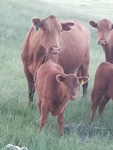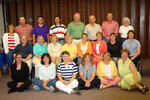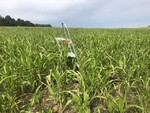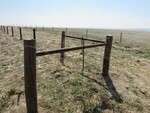Posted date: Mar 24, 2020
by: Admin My Local Life
846 Views
USDA Service Centers in Kansas will continue to be open for business by phone appointment only, and field work will continue with appropriate social distancing. While our program delivery staff will continue to come into the office, they will be working with our producers by phone, and using online tools whenever possible. All service center visitors wishing to conduct business with the Farm Service Agency (FSA), Natural Resources Conservation Service (NRCS), or any other service center agency are required to call their service center to schedule a phone appointment. In the event a service center is closed, producers can receive assistance from the closest alternate service center by phone.

Producers can find service center phone numbers at https://farmers.gov/service-center-locator.
Farm Production and Conservation (FPAC) agencies continue to look at the flexibilities to deliver programs on behalf of producers, just as they have in past situations, such as natural disasters. Farmers and ranchers are resilient and FPAC agencies will continue to deliver the farm programs and resource conservation programs that keep American agriculture in business today and long into the future.
Online services are available to customers with an eAuthentication (eAuth) account, which provides access to the https://farmers.gov portal. Producers can view USDA farm loan information, and view and track certain USDA program applications and payments. Online NRCS services are available to customers through the Conservation Client Gateway. Customers can track payments, report completed practices, request conservation assistance, and electronically sign documents. Customers who do not already have an eAuth account can enroll at https://farmers.gov/sign-in.
For the most current updates on available services and service center status visit https://farmers.gov/coronavirus.
#
Helping People Help the Land.
USDA is an equal opportunity provider, employer, and lender.








